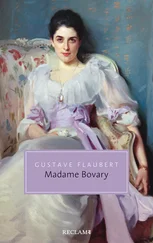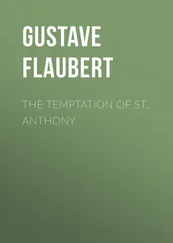Gustave Flaubert - The George Sand-Gustave Flaubert Letters
Здесь есть возможность читать онлайн «Gustave Flaubert - The George Sand-Gustave Flaubert Letters» — ознакомительный отрывок электронной книги совершенно бесплатно, а после прочтения отрывка купить полную версию. В некоторых случаях можно слушать аудио, скачать через торрент в формате fb2 и присутствует краткое содержание. Жанр: foreign_antique, foreign_prose, на английском языке. Описание произведения, (предисловие) а так же отзывы посетителей доступны на портале библиотеки ЛибКат.
- Название:The George Sand-Gustave Flaubert Letters
- Автор:
- Жанр:
- Год:неизвестен
- ISBN:нет данных
- Рейтинг книги:4 / 5. Голосов: 1
-
Избранное:Добавить в избранное
- Отзывы:
-
Ваша оценка:
- 80
- 1
- 2
- 3
- 4
- 5
The George Sand-Gustave Flaubert Letters: краткое содержание, описание и аннотация
Предлагаем к чтению аннотацию, описание, краткое содержание или предисловие (зависит от того, что написал сам автор книги «The George Sand-Gustave Flaubert Letters»). Если вы не нашли необходимую информацию о книге — напишите в комментариях, мы постараемся отыскать её.
The George Sand-Gustave Flaubert Letters — читать онлайн ознакомительный отрывок
Ниже представлен текст книги, разбитый по страницам. Система сохранения места последней прочитанной страницы, позволяет с удобством читать онлайн бесплатно книгу «The George Sand-Gustave Flaubert Letters», без необходимости каждый раз заново искать на чём Вы остановились. Поставьте закладку, и сможете в любой момент перейти на страницу, на которой закончили чтение.
Интервал:
Закладка:
Well, resigned in the sense of defeated, George Sand never became; nor did she, perhaps, ever wholly acquiesce in that scheme of things which M. Caro impressively designates as "the universal order." Yet with age, the abandonment of many distractions, the retreat to Nohant, the consolations of nature, and her occupation with tales of pastoral life, beginning with La Mare au Diable, there develops within her, there diffuses itself around her, there appears in her work a charm like that which falls upon green fields from the level rays of the evening sun after a day of storms. It is not the charm, precisely, of resignation; it is the charm of serenity – the serenity of an old revolutionist who no longer expects victory in the morning yet is secure in her confidence of a final triumph, and still more secure in the goodness of her cause. "A hundred times in life," she declares, "the good that one does seems to serve no immediate purpose; yet it maintains in one way and another the tradition of well wishing and well doing, without which all would perish." At the outset of her career we compared her with Shelley. In her last phase, she reminds us rather of the authors of Far from the Madding Crowd and The Mill on the Floss, and of Wordsworth, once, too, a torch of revolution, turning to his Michaels and his leech-gatherers and his Peter Bells. Her exquisite pictures of pastoral life are idealizations of it; her representations of the peasant are not corroborated by Zola's; to the last she approaches the shield of human nature from the golden side. But for herself at least she has found a real secret of happiness in country life, tranquil work, and a right direction given to her own heart and conscience.
It is at about this point in her spiritual development that she turns towards Gustave Flaubert – perhaps a little suspiciously at first, yet resolved from the first, according to her natural instinct and her now fixed principles, to stimulate by believing in his admirable qualities. Writing from Nohant in 1866 to him at Croisset, she epitomises her distinction as a woman and as an author in this playful sally: "Sainte-Beuve, who loves you nevertheless, pretends that you are dreadfully vicious. But perhaps he sees with eyes a bit dirty, like that learned botanist who pretends that the germander is of a DIRTY yellow. The observation was so false that I could not help writing on the margin of his book: 'IT IS YOU, WHOSE EYES ARE DIRTY.'"
We have spoken of George Sand as a faithful daughter of the French Revolution; and by way of contrast we may speak of Flaubert as a disgruntled son of the Second Empire. Between his literary advent and hers there is an interval of a generation, during which the proud expansive spirit and the grandiose aspirations imparted to the nation by the first Napoleon dwindled to a spirit of mediocrity and bourgeois smugness under a Napoleon who had inherited nothing great of his predecessor but his name. This change in the time-spirit may help to explain the most significant difference between Flaubert and George Sand. He inherited the tastes and imagination of the great romantic generation; but he inherited none of its social and political enthusiasm. He was disciplined by the romantic writers; yet his reaction to the literary culture of his youth is not ethical but aesthetic; he finds his inspiration less in Rousseau than in Chateaubriand. He is bred to an admiration of eloquence, the poetic phrase, the splendid picture, life in the grand style; with increasing disgust he finds himself entering a society which, he feels, neither understands nor values any of these things, and which threatens their destruction. Consequently, we find him actuated as a writer by two complementary passions – the love of splendor and the hatred of mediocrity – two passions, of which the second sometimes alternates with the first, sometimes inseparably fuses with it, and ultimately almost extinguishes it.
The son of an eminent surgeon of Rouen, Gustave Flaubert may have acquired from his father something of that scientific precision of observation and that cutting accuracy of expression, by which he gained his place at the head of modern French realism and won the discipleship of the Goncourts, Daudet, Zola, and Maupassant and the applause of such connoisseurs of technique as Walter Pater and Henry James. From his mother's Norman ancestry he inherited the physique of a giant, tainted with epilepsy; a Viking countenance, strong- featured with leonine moustaches; and a barbaric temper, habitually somewhat lethargic but irritable, and, when roused, violent and intolerant of opposition. He had a private education at Rouen, with wide desultory reading; went to Paris, which he hated, to study law, which he also hated; frequented the theatres and studios; travelled in Corsica, the Pyrenees, and the East, which he adored, seeing Egypt, Palestine, Constantinople, and Greece; and he had one, and only one, important love-affair, extending from 1846 to 1854 – that with Mme. Louise Colet, a woman of letters, whose difficult relations with Flaubert are sympathetically touched upon in Pater's celebrated essay on "Style." When by the death of his father, in 1845, he succeeded to the family-seat at Croisset, near Rouen, he settled himself in a studious solitude to the pursuit of letters, which he followed for thirty-four years with anguish of spirit and dogged persistence.
Flaubert probably loved glory as much as any man; but he desired to receive it only on his own terms. He profoundly appeals to writers endowed with "the artistic conscience" as "the martyr of literary style." In morals something of a libertine, in matters of art he exhibited the intolerance of weakness in others and the remorseless self-examination and self-torment commonly attributed to the Puritan. His friend Maxime Du Camp, who tried to bring him out and teach him the arts of popularity, he rebuffed with deliberate insult. He developed an aversion to any interruption of his work, and such tension and excitability of nerves that he shunned a day's outing or a chat with an old companion, lest it distract him for a month afterward. His mistress he seems to have estranged by an ill- concealed preference to her of his exacting Muse. To illustrate his "monkish" consecration to his craft we cannot do better than reproduce a passage, quoted by Pater, from his letters to Madame Colet:
"I must scold you for one thing, which shocks, scandalises me, the small concern, namely, you show for art just now. As regards glory be it so – there I approve. But for art! – the one thing in life that is good and real – can you compare with it an earthly love? – prefer the adoration of a relative beauty to the cultus of the true beauty? Well! I tell you the truth. That is the one thing good in me: the one thing I have, to me estimable. For yourself, you blend with the beautiful a heap of alien things, the useful, the agreeable, what not?
"The only way not to be unhappy is to shut yourself up in art, and count everything else as nothing. Pride takes the place of all beside when it is established on a large basis. Work! God wills it. That, it seems to me, is clear.
"I am reading over again the Aeneid, certain verses of which I repeat to myself to satiety. There are phrases there which stay in one's head, by which I find myself beset, as with those musical airs which are forever returning, and cause you pain, you love them so much. I observe that I no longer laugh much, and am no longer depressed. I am ripe, you talk of my serenity, and envy me. It may well surprise you. Sick, irritated, the prey a thousand times a day of cruel pain, I continue my labour like a true working-man, who, with sleeves turned up, in the sweat of his brow, beats away at his anvil, never troubling himself whether it rains or blows, for hail or thunder. I was not like that formerly."
The half-dozen works which Flaubert beat out on his "anvil," with an average expenditure of half-a-dozen years to each, were composed on a theory of which the prime distinguishing feature was the great doctrine of "impersonality." George Sand's fluent improvisations ordinarily originated, as we have noted, in an impulse of her lyrical idealism; she began with an aspiration of her heart, to execute which she invented characters and plot so that she is always on the inside of her story. According to Flaubert's theory, the novel should originate in a desire to present a certain segment of observed life. The author is to take and rigorously maintain a position outside his work. The organ with which he collects his materials is not his heart but his eyes, supplemented by the other senses. Life, so far as the scientific observer can be sure of it, and so far as the artist can control it for representation, is a picture or series of pictures, a dramatic scene or a concatenation of dramatic scenes. Let the novelist first, therefore, with scrupulous fidelity and with minute regard for the possible significance of every observable detail, fill his notebooks, amass his materials, master his subject. After Flaubert, a first-rate sociological investigator is three-fourths of a novelist. The rest of the task is to arrange and set forth these facts so that they shall tell the truth about life impressively, in scene and dramatic spectacle, the meaning of which shall be implicit in the plot and shall reach the reader's consciousness through his senses.
Читать дальшеИнтервал:
Закладка:
Похожие книги на «The George Sand-Gustave Flaubert Letters»
Представляем Вашему вниманию похожие книги на «The George Sand-Gustave Flaubert Letters» списком для выбора. Мы отобрали схожую по названию и смыслу литературу в надежде предоставить читателям больше вариантов отыскать новые, интересные, ещё непрочитанные произведения.
Обсуждение, отзывы о книге «The George Sand-Gustave Flaubert Letters» и просто собственные мнения читателей. Оставьте ваши комментарии, напишите, что Вы думаете о произведении, его смысле или главных героях. Укажите что конкретно понравилось, а что нет, и почему Вы так считаете.












